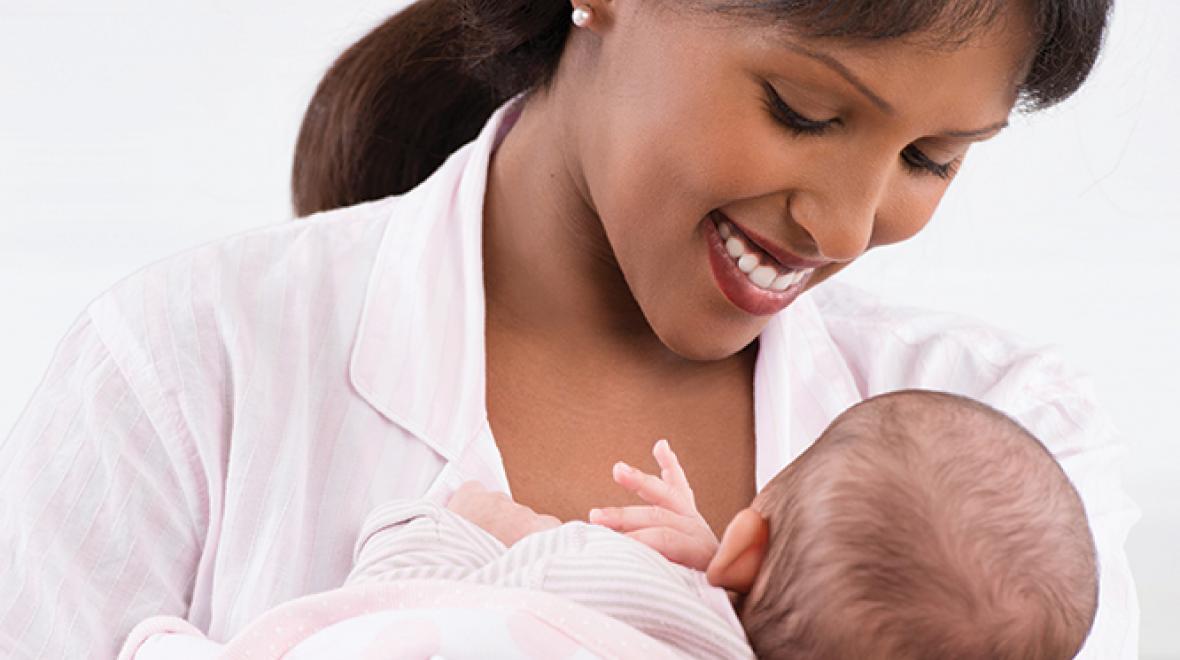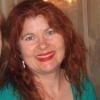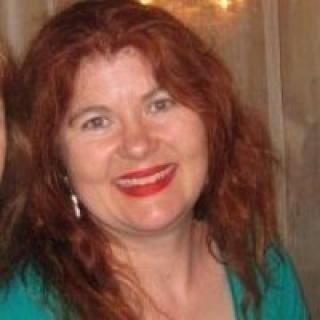
Harrison Yu is a busy boy. He takes Mandarin Chinese classes, swim lessons and gym classes. His mother, Suzanne Yu, a licensed mental health counselor in private practice in Woodinville, has noticed that Harrison also enjoys music; she’d like to find him a music class, too. So far, she hasn’t had much luck locating one near their Kirkland home that fits into their busy schedule. Luckily, Suzanne has some time: Harrison just turned 1 in August.
Harrison is not unique in his busy baby schedule. All over the Puget Sound area, there has been a tremendous growth in classes for babies and “mom and tot” support groups. Bellevue mom and freelance graphic designer Sonja Gerald’s sons have participated in Kindermusik classes since they were 4 months old, but that’s where she drew the line. “I had friends who had their kids in several different activities before they were the age of 1,” Gerald says. “It seemed too overwhelming to me. I didn’t want to be burned out myself. I just wanted to have one activity that both my babies and I enjoyed and looked forward doing once a week.”
Do babies need classes?
If you have a newborn, you know: Just getting out of the house can feel like an accomplishment. Does your baby really need to take classes? How do you choose the right ones? And can you overschedule your baby?
North Seattle’s Sheri Hill, Ph.D., spent 12 years working at the University of Washington, most recently serving as faculty lead on policy for the Center on Infant Mental Health & Development. In July, she left the UW to focus on consulting as an early childhood policy specialist. Hill says that you need to know this fact: Research clearly shows the years from birth to 3 are critical to brain development. But Hill says rather than specific classes, you should focus on your emotional bond with your baby. “Every achievement for a child occurs in the context of a close interpersonal relationship,” she says, “and strong brain functioning is created in babies who have a positive relationship with a primary caregiver.”
You might worry that if you don’t do activities, such as music or learning a second language, before your baby turns 3, she will not master them in later life. But Hill says research shows that the process is more complicated than just taking a class. What really matters, she says, is what is happening at home. “Kids do learn languages easier at this age, but it is what they learn from their daily interactions at home that will stick with them for the rest of their lives,” Hill says.
So, how should you choose what’s best for your baby? Hill suggests you ask yourself: “Does this help me interact and relate with my baby?” Classes for babies and parents can be valuable because, Hill says, adults sometimes need help remembering how to play, and many of the classes “are set up in such a way that parents really do pay better attention to their baby.”
Strengthening the bond
Rebecca Heib has taught Kindermusik classes for more than a decade and is the owner of The Musik Nest in Issaquah’s Gilman Village. Kindermusik is an early-childhood music and movement program for kids from birth through age 7 and their families. Heib’s Kindermusik program includes classes tailored to newborns through 16 months, called Kindermusik Village, and a Kindermusik Sign and Sing course. She says that babies naturally love music. “In my years of teaching music to infants, I have heard again and again parents telling me how their baby just lights up and smiles when they hear familiar music,” she says, “how they’ll start rocking, clapping and cooing when a song we have been singing in class is sung to them.”
Creating music with your baby can strengthen the bond between you, says Heib. “When your baby engages in the musical activities of a Kindermusik class, they do so much more than watch and hear music. They play and explore musical instruments, create sounds and dance cradled securely in their mommy’s or daddy’s arms. Your baby is involved in the creative process of making music with you and therefore an emotional bond is created that promotes joy and comfort that is directly connected to music,” Heib says.
Babies also love to move, play and try new activities. Brian Flora owns My Gym in the Crossroads neighborhood of Bellevue, where he offers classes for infants through age 13 and “mom and tot” fitness programs. Flora says that in addition to strengthening the infant and caregiver bond, My Gym instructors are also sensitive to the safety needs of working with tiny athletes. “Extreme emphasis has been placed on safety in the creation of this program, and we spare no effort in providing a clean environment for this tender age group.” Flora says that the My Gym classes for infants and toddlers work on building physical strength, fine- and gross-motor proficiency, cognitive development, sensory integration and socialization.
And you might just learn something about your baby in one of these classes. “The variety of activities and experiences presented by attending regular My Gym classes may provide the parent with more and earlier opportunities to access his or her child’s development,” Flora says. “It is amazing to watch children grow and learn. It is also very important to detect and address any possible delays or concerns as early as possible.”
Know when it’s too much
University of Washington Assistant Professor JoAnne Solchany studies the relationship between children and their caregivers. She says that parents should focus on reading their baby’s cues when starting a new class. Babies who are “smiling, moving forward toward an object or activity, excited and joyful” are probably enjoying the class experience, while babies who are “fussy and trying to check out or throwing a tantrum” are probably not enjoying the class. Watch your baby’s clues, advises Solchany, and if he or she is not having a good time, try holding them closer for a few minutes or giving them a break from the activity. If you return and the baby is still unhappy, you may want to wait a few months to return to the class and try again.
Babies have “off days” too, so if your baby is crabby or overly tired, skip class that day, Solchany advises. Because it is often difficult to know if a baby will enjoy a new class or not, she suggests you look for programs that are willing to let you try the first class with the baby for free.
Solchany suggests this rule of thumb for parents: One class at a time. “I don’t think you should ever have kids in multiple things. You can overschedule a child,” she says. Solchany cites the work of University of Washington professor (and ParentMap advisory board member) Kathryn E. Barnard, Ph.D., who has spent many years researching infants. She has found that babies thrive when they are strongly attached to their primary caregiver and have time to integrate everything they are learning. The core of Barnard’s work has been to show that healthy infant development is dependent upon a parent or caretaker responding to signals from the child in a loving and dependable manner, starting from the moment of birth. You don’t need classes for that, Solchany says. “Infants need stimulation, but they can get that at home in the right environment.” Hill agrees. “Babies should not spend their lives in portable car seats.”
Whatever activities you choose, Hill says your focus should be on spending time with your baby. Look at him, play with him, talk to him, hold him — build up that strong emotional connection.
Support for you
Babies aren’t the only ones who need support; their parents can get a lot out of parent-and-tot classes too, according to Sheri Hill. Organizations such as the Program for Early Parent Support (PEPS) and Listening Mothers can be a valuable activity for both the parent and the baby. When choosing a support group, Hill suggests you look for a group that feels supportive — not competitive — and ask: “Does this group help me take better care of my own mental health and how I feel about being a parent?”
Sandra Wallace is the Newborn Program manager of PEPS and one of its original founders. There are 160 PEPS groups in King County alone. Ninety percent of PEP’s group leaders are former PEPS members. “They’re not experts,” Wallace says, “but they’re empathetic, and receive training in active listening and group facilitation.” PEPS was created in 1983 to combat the isolation most new parents experience and to give parents a way to find support and learn from each other. PEPS groups meet in members’ homes; meetings are structured and the average group size is 10 parents with their babies. PEPS is for parents of babies between newborn and 4 months of age, but groups can become so bonded that they continue to get together for years afterwards. PEPS groups continue to be so popular that the demand for new groups exceeds the supply of volunteer leaders.
Debra Zappacosta, a Phinney Ridge mom of two, has participated both in PEPS and Listening Mothers. Prior to starting a family, she worked at Microsoft, and knew after the birth of her now 2 1/2 year-old son, Dante, that she needed to combat isolation and connect with other parents who were going through the same things. She says that being a member of a Listening Mothers group helped her in many ways, including helping her stay connected to her husband. The group also helped her examine “how do I want to be a mother?”
Yaffa Maritz, founder of Listening Mothers, says the program, for babies 8 weeks to 6 months of age, are small groups facilitated by trained mental health professionals. The intention is to “enhance secure attachment” and help mothers engage with their babies. “Babies learn from other human beings and primarily through interaction with a parent,” says Maritz.
When considering taking a class with your baby, Maritz says you should pay attention to your own feelings. Are you looking forward to it? “Emotionally, we remember the things that we enjoy. Create the time and space for you and your baby to be in a mutually engaging activity,” Maritz says. “Mothers need to remember to also take care of themselves, so monitor your energy and don’t feel pressured to do too many things.”
Maritz says that support groups such as PEPs and Listening Mothers are important because thriving babies need mothers who are not feeling isolated and unsupported in their new and very demanding roles. “Many moms feel very isolated in their lives, and we often don’t have family living nearby to support us,” Maritz says. Sharing experiences with other parents, whether in a baby music or gym class or a support group, helps you connect with your baby emotionally. Maritz also encourages parents to seek out support and mentors through their faith communities, friends and family. “Surround yourself with people who are supportive and loving.”
Kathleen F. Miller is a Sammamish-based freelance writer. Some of her favorite memories of her children when they were babies and toddlers are of singing and dancing with them in their Kindermusik classes. She was a member of the Redmond Toddler Group (RTG) for two years with her son Mychal.
Resources
Baby classes:
Your local parks and recreation department may offer inexpensive fitness, music, baby signing and “free play” opportunities for you and your baby or toddler.
Gymboree. Offers fitness and music classes for infants through 5 years
of age. Locations include Seattle, Lynnwood, Redmond, Issaquah
and Federal Way. www.gymboreeclasses.com
Kindermusik. Offers music classes for infants through 7 years of age. Locations around the Puget Sound area include Everett, Bremerton, Olympia, Issaquah and Seattle. www.kindermusik.com
The Little Gym. Offers fitness classes for infants through grade school. Puget Sound-area locations include Bellevue, Everett, Kenmore, Kent, Puyallup, Seattle and Issaquah. www.thelittlegym.com
My Gym. Fitness and specialized sport classes for infants through age 13. Free first class when requested. Puget Sound-area locations include Bellevue, Covington, Federal Way and Silverdale. www.my-gym.com
Zoom. Offers Spanish-language immersion classes in Ballard for 1- to 10-year-olds.
www.zoomlanguage.com, 206-783-5000
Sponge. Several languages are taught for infant through 5-year-olds including French, Japanese, Mandarin and Spanish in its Seattle and Issaquah locations. www.spongeschool.com
Fastrackids. Offers baby signing (for hearing babies) and singing classes in its Redmond location. www.fastrackids.com, 425-861-5437
Parent and tot groups:
Program for Early Parent Support (PEPS). Many locations. Special support groups for parents of twins and toddlers and also evening groups for working parents.
www.pepsgroup.org or call 206-547-8570, ext.10.
Listening Mothers. Locations around the greater Seattle area. Support groups for mothers of both infants to toddlers. www.listeningmothers.org, 206-275-0104
Eastside Families of Multiples (EMOMS). Offers specialized support to families raising multiples. Famous for its “Toys and Togs” sale held twice a year at Bellevue Community College. Fall sale is scheduled for September 22, 2007. More information on the Web site. www.efoms.org
Eastside Mothers and More — The Network for Sequencing Women. This group meets in Bellevue and offers support to parents, including a Mom's Night Out, playgroups
and more. Also works as a group to improve the lives of mothers through support, advocacy and education. Other chapters in the Puget Sound area include Seattle, Redmond and South Snohomish. www.eastsidemothersandmore.org
Redmond Toddler Group. In conjunction with the Lake Washington Technical College, the Redmond Toddler Group offers support and parent education to parents of infants through age 3. The group meets near the east entrance of Marymoor Park in Redmond. Check the Web site for information on its fall open house. www.redmondtoddler.org, 425-869-5605











